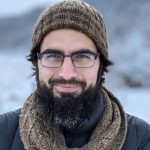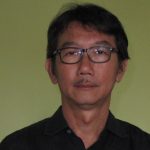Sociocultural Anthropology Research Program

Sociocultural Anthropology Research Program
A Responsible Anthropology that Matters
As sociocultural anthropologists at McMaster University we are committed to an engaged and relevant anthropology that focuses on issues of public concern, and we maintain a strong critical and theoretical focus on three thematic clusters: democracy, violence, and humanitarian intervention; media, visuality, and art; and a broad range of topics within medical anthropology, including welfare, care, well-being, religion/spirituality, and Indigenous knowledge.
One of our unique and distinctive contributions as sociocultural anthropologists is that through ethnographic and community-engaged research we often build intensive, rich and enduring relationships with the people and peoples with whom we work. This gives us access to ‘human scale’ and Indigenous forms of knowledge and insights that are relatively uncommon within academia.
It also creates unique responsibilities and opportunities to make our research and writing relevant and useful to people and organizations outside the university, many of whom are not often beneficiaries of university-based research and may not even be formally organized.
McMaster sociocultural anthropologists have a rich tradition of collegiality and collaboration with one another and with our research participants as intellectual partners.
This includes long-standing relationships with Six Nations, and various capacity-building projects co-created to benefit both communities and learning environments. We bring this ethic of community-engagement and commitment to our research in different parts of the world, including Southeast and East Asia, Europe, Russia and the Americas.
As part of these commitments we have developed linkages to Institute on Globalization and the Human Condition, the Asian Research Working Group, the Critical Health Research Network, and the Arts-Centered Community-Engaged Social Science Collaboration, among other research initiatives at McMaster and beyond.
We also have a long working relationship with the Indigenous Studies program at McMaster, the Indigenous Knowledge Centre at Six Nations Polytechnic, Aboriginal Health Research Network Secretariat and organizations in the wider Hamilton community.
The linkages between academic research and diverse communities and research partners extend into and inform our teaching, making anthropology a relevant and engaged endeavor for our students. Indeed, because we are committed to developing future researchers through both the undergraduate and graduate programs, students play a central role in shaping the intellectual life and direction of the department.
If you would like to join our open, multi-vocal conversation and community of research, please get in touch with any of our sociocultural anthropology faculty.
Faculty

Cal Biruk
PhD
Associate Professor, Anthropology
Graduate Chair, Anthropology

Basit Iqbal
PhD
Assistant Professor, Anthropology
Adjunct & Associate Member, Religious Studies
Adjunct & Associate Member, Institute on Globalization & the Human Condition

Dawn Martin-hill
PhD
Professor, Anthropology

Karen McGarry
PhD
Associate Professor, Anthropology
Undergraduate Chair, Anthropology

Kee Yong
PhD
Associate Professor, Anthropology
Adjunct & Associate Member, Institute on Globalization & the Human Condition
Theses awarded in Sociocultural Anthropology
Stanley, Daina
2021: Care in Custody: An Ethnography of Illness and End of Life in Prison
Juric, Dorian
2019: Singing the Vila: Supernatural Beings in the Context of their Traditions
Plett, Rebecca
2017: In the World and of It: Russian Mennonites and Narratives of Community in Contemporary Canada
Yang, Tian
2015: Assessing Heritage, Tradition, and Identity?Anthropological Research among the Jurchen People of Wanyan Village
Lockerbie, Stacy
2014: Making Motherhood: Exploring Transnational Adoption Practices Between Canada and China
Sage, Vanessa E.
2013: Arts in the City: Visions of James Street North, 2005-2011
Brown, Heather
2012: Visualizing Uncertainty: Opposition to Islam in the Netherlands Through the Lens of Fitna: The Movie
Skye, Jairus
2012: Urban Aboriginal Health: Issues, Culturally Appropriate Solutions and the Embodiment of Self-Determination
Strachan, Laura
2012: The Bedouin Know! Using Local Knowledge to Understand the Effects of Development at the Wadi Rum Protected Area in Southern Jordan
Mossman, Kathryn
2011: Aspirations for Senegal: Exploring International NGO Connections
Geer, Sacha
2010: Conjuring and Avoiding the “Bad Man”: Narratives of Crime and Fear in Trinidad
Armstrong, Justin
2010: Lives Once Lived: ethnography and sense of place in the abandoned and isolated spaces of North America
Saleem, Shahtaj
2019: Stabilizing the self: Immigrant Labour and Rethinking Precarity
Kirkconnell, Andrew
2019: “Where Everyone Waddles Like Me”: An examination of the autistic community on Tumblr.com
Karrel, Miriam
2018: An Exploration of Death Cafes in Canada
Del Rio, Fiona
2017: Conceptualizing Climate Activism and Exploring the People’s Climate Movement
Manitowabi, Joshua
2017: It Sometimes Speaks To Us
Mayell, Stephanie
2016: Up-rooted Lives, Deep-rooted Memories: Stress and Resilience among Jamaican Agricultural Workers in Southern Ontario
Da Silva, Stephanie
2013: “In My Heart I am Portuguese”: Perspectives on Portuguese Migration, Identity and Religion in Hamilton, Ontario
George, Meghna
2012: Laughing in Circles: Exploring the Relationship Between Politically Correct Discourses and Stand-Up Comedy in Toronto
Juric, Dorian
2010: A Treatise on the South Slavic Vila



